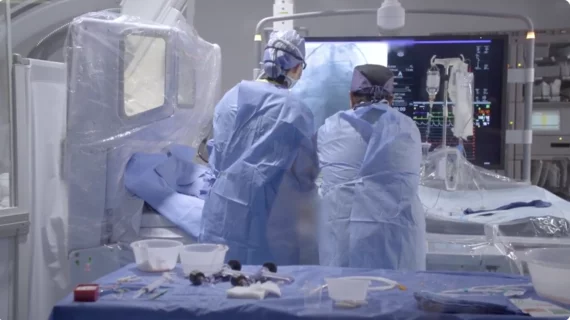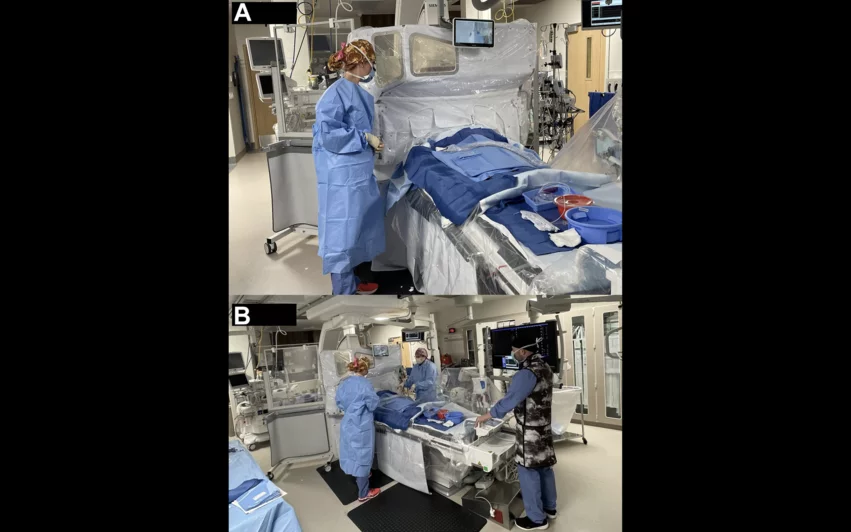Cardiologist urges cath labs to adopt radiation shields: ‘It is time to protect ourselves’
Interventional cardiologist David G. Rizik, MD, is pushing for more cardiac catheterization labs to start using radiation shields. The shields can significantly reduce radiation exposure, according to Rizik, and they mean cardiologists, nurses and cath lab technicians can provide care without wearing lead aprons.
Rizik, medical director of the cardiovascular research division of the HonorHealth Research Institute, presented new data on the benefits of radiation shields Tuesday, March 12, at Cardiovascular Research Technologies (CRT) 2024 meeting in Washington, D.C. He and his team tracked data from nearly 500 patients who underwent treatment in a single U.S. cath lab. Overall, he said there was no detectable radiation exposure to cath lab employees in 70% of cases, and total exposure was reduced by more than 99%.
“We’ve known about this for decades and yet we have not done anything to improve workplace safety in the cardiac catheterization laboratory,” he said in a statement. “It’s time for us to get with it, and hospitals aren’t doing it.”
Rizik has also said these shields could improve the mental health of interventional cardiologists and other cath lab employees by alleviating any fears related to long-term radiation exposure.
“We are occupationally exposed,” he said in the same statement. “It is time to protect ourselves.”
Ongoing research into the benefits of radiation shields in the cath lab
Rizik has been exploring the potential impact of radiation shields for quite some time. In March 2023, for instance, he led a study in JSCAI that linked the Protego Protect Radiation Protection System from Image Diagnostics to “excellent” protection from chronic radiation exposure.[1]
“The magnitude of protection achieves state regulatory standards sufficient to allow operators to perform procedures without orthopedically burdensome lead aprons,” his team concluded. “This shield system has the potential to reduce occupational health hazards.”
Rizik has said he has no financial interests in Image Diagnostics or its Protego technology. Read that full analysis in JSCAI here.


